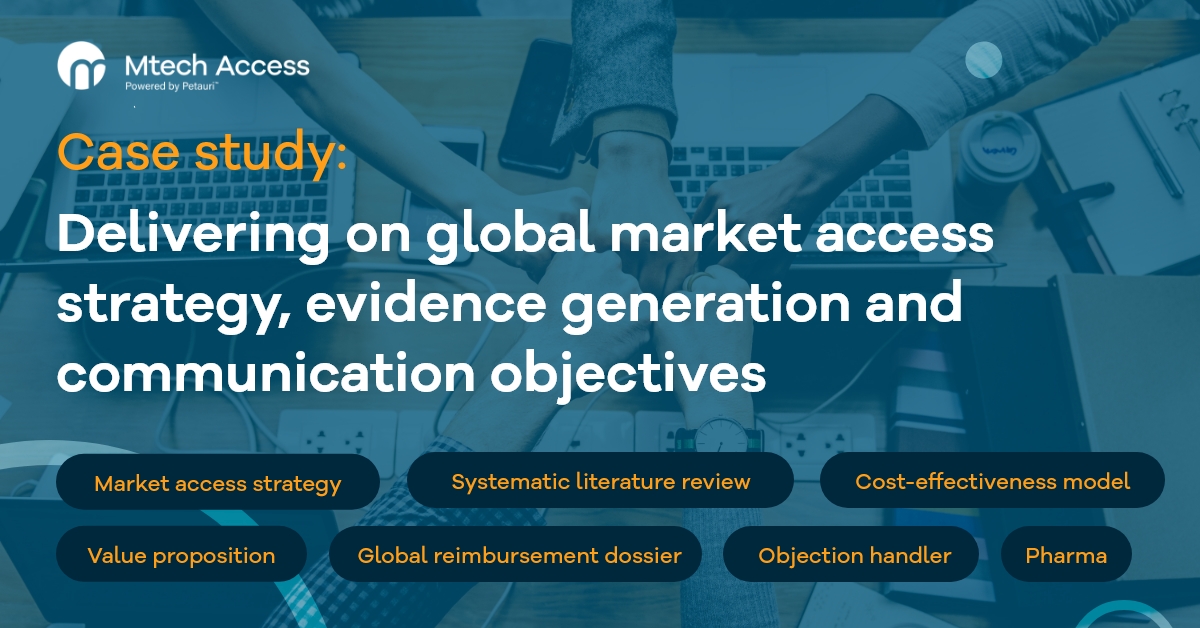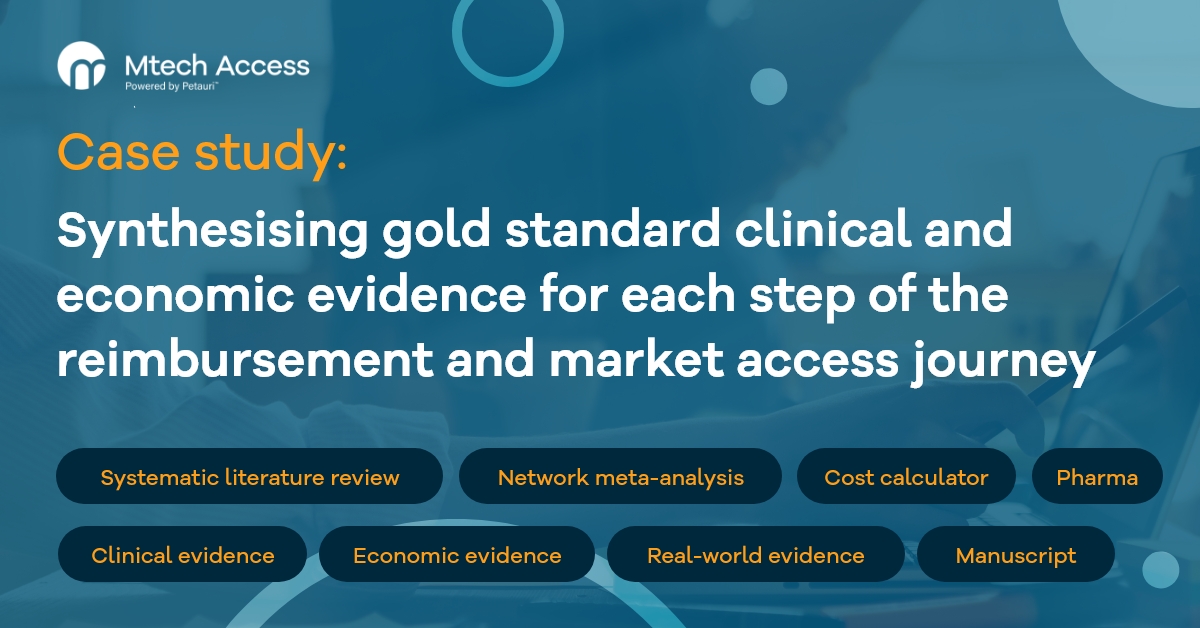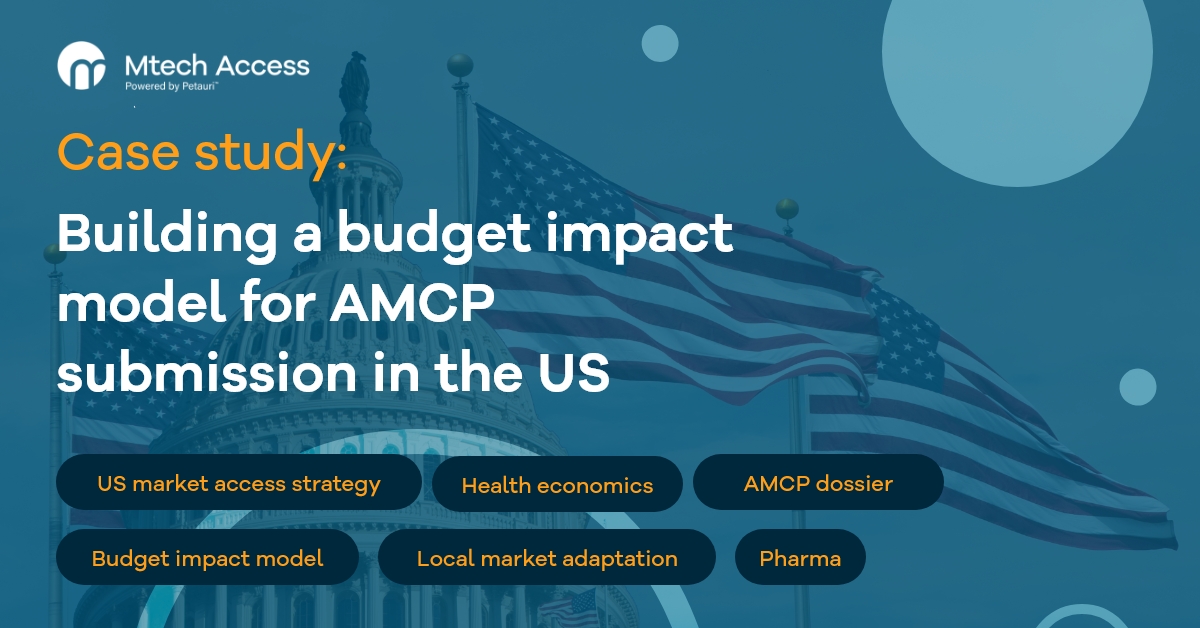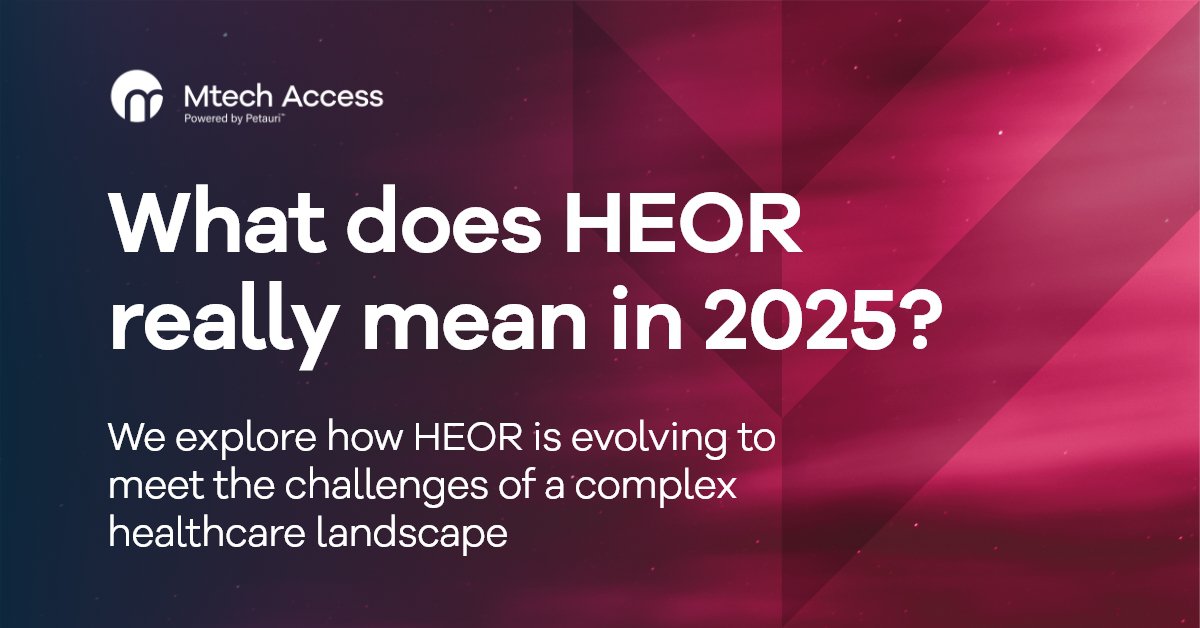Evidence-based decision making in healthcare
A robust, comprehensive evidence base is crucial in demonstrating the effectiveness and value of healthcare technologies to payers and other stakeholders.
Evidence-based decision-making fuels the life sciences sector and is key to each and every step of the product lifecycle, from go/no go decisions on clinical trials to the development of global market access strategies.
All stakeholders, including Health Technology Assessment (HTA) agencies, national payers, healthcare providers and local prescribers, evaluate a technology’s clinical, economic and health outcomes evidence base.
Health Economics and Outcomes Research (HEOR) teams are responsible for identifying, synthesising and presenting evidence in a way that clearly demonstrates the value a product offers for patients and for healthcare systems.
Work with our HEOR consultants
HEOR as a discipline brings together two key areas of specialism: health economics and outcomes research.
Our in-house team of HEOR consultants, health economists, evidence review analysts and statisticians work together to generate the clinical and economic evidence required for internal and external decision making.
As a leading HEOR consultancy, we combine rigorous academic protocols with a deep understanding of the commercial requirements and financial challenges of global healthcare markets.
This enables us to generate an evidence base and present data in a way that resonates with reimbursement agencies and local payers.
We can help you develop a roadmap of activities that will build a strong evidence base to support your product’s value proposition.
To discuss your HEOR needs with our HEOR specialist consultants, get in touch using the form below.
Our HEOR services
Evidence Synthesis
- Evidence mapping and scoping reviews for strategic insight
- Systematic literature reviews – the gold standard for HTA and published evidence
- Living reviews that maintain an up-to-date evidence base
- Trial data and real-world evidence
- Risk of bias assessments
- Market landscape reviews
- Rapid and pragmatic approaches
- Umbrella reviews
- Meta-analysis feasibility and network meta-analysis
- Bespoke statistical analyses
- Critiques of reviews and meta-analyses
- Publication strategies
- PROSPERO submission
- Evidence mapping and scoping reviews for strategic insight
- Systematic literature reviews – the gold standard for HTA and published evidence
- Living reviews that maintain an up-to-date evidence base
- Trial data and real-world evidence
- Risk of bias assessments
- Market landscape reviews
- Rapid and pragmatic approaches
- Umbrella reviews
- Meta-analysis feasibility and network meta-analysis
- Bespoke statistical analyses
- Critiques of reviews and meta-analyses
- Publication strategies
- PROSPERO submission
Health Economics
- Development and critique of health economics strategy
- Early economic modelling
- Global cost-effectiveness and budget impact models
- Country adaptations of global models
- Modelling support for HTA submissions
- Technical documentation and manuscript writing
- Models for use with local payers
HEOR and Evidence Synthesis
Discover how our experts in health economics, systematic literature review and network meta-analysis can help you build a strong evidence base. Download brochure.
Featured Case Studies
-
View Case Study
Delivering on global market access strategy, evidence generation and communication objectives
-
View Case Study
Evaluating existing research and identifying evidence gaps to inform future research priorities
-
View Case Study
Synthesising gold standard clinical and economic evidence for each step of the reimbursement and market access journey
-
View Case Study
Building a budget impact model for AMCP submission in the US
Key steps in the HEOR journey
HEOR strategy and evidence generation planning
Before commissioning a systematic review or cost-effectiveness model, it is important to take a broad look across the market landscape and consider your wider commercial goals.
To ensure you generate the right evidence, you may need to consider:
- How will your evidence base be used?
- Who are the key stakeholders and what will they be looking to understand?
- Will your evidence base be used for internal or external decision making?
- Will different markets/reimbursement bodies/payers have different requirements?
- Do your clinical trial data fully meet your reimbursement needs or is further data collection required?
- How does your evidence sit within the existing published literature?
Our HEOR experts draw on extensive experience to recommend an evidence strategy to meet your needs.


Synthesising HEOR data
HEOR data are brought together from many sources.
The product’s clinical trial data are analysed alongside systematic reviews of published data for competitor products.
Real-world data and real-world evidence are increasingly used to supplement data collected in the clinical trial setting.
These data are combined with pricing data in Health Economic models that estimate the value of the product against its competitors.
HEOR methodologies
How do we synthesise HEOR data to develop an evidence base?
We employ a wide range of HEOR methodologies to develop an evidence base that supports healthcare decision making.
Our evidence analysts offer a range of options for literature reviews, from gold-standard systematic literature reviews (required for most HTA submissions) to rapid reviews and scoping reviews.
We also have in-house experts in statistical analysis, including network meta-analysis.
Our health economists can develop all health economic model types, including:
- Decision trees, Markov and semi-Markov models, partitioned survival models, discrete event simulations, and regression-based models
- Cost-effectiveness, cost-utility, cost-minimisation, cost-benefit, cost-consequence and budget impact models
Medical writing for HEOR
HEOR outputs are often detailed and complex. In order for HEOR data and conclusions to play a productive role in healthcare decision-making, the evidence must be presented in a way that is scientifically rigorous yet accessible, clear and compelling. This is the expertise of medical writing.
Our in-house team of technical writers and market access consultants work closely with our evidence analysts and health economists to present your data in a way that will resonate with payers, reimbursement bodies and other decision makers.

We can prepare your evidence base as:
- An internal global value dossier
- A reimbursement dossier for local teams to adapt for different HTA bodies
- HTA submission dossiers, including for NICE and SMC
- Publications in journals or as conference abstracts and posters
HEOR news and insights
What does HEOR really mean in 2025?
Global healthcare faces growing pressures. We explore how HEOR is evolving in 2025 to deliver value, meet payer needs, and support market access decisions…
Navigating US payer evidence needs to optimise market access
How can you optimise your chances of preferential access in the US with the right evidence? Join Clare Foy (Director – Global Market Access, Mtech Access) as she interviews colleagues Nicole Lodowski (Managing Director, Petauri Evidence) and Bob Nordyke (Senior Advisor, Petauri Evidence) about US payer evidence challenges…
De-mystifying health economic model classifications and structures
What is health economic evaluation and which modelling approaches can be used to support market access activities? Join us for this live webinar…










